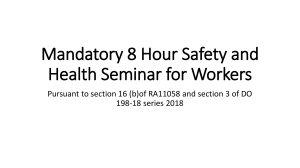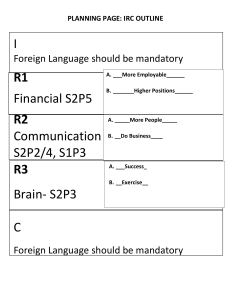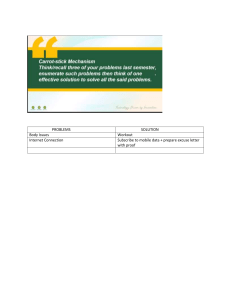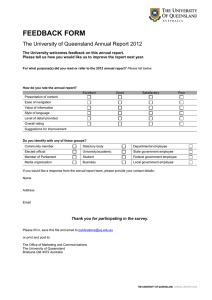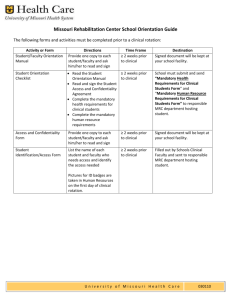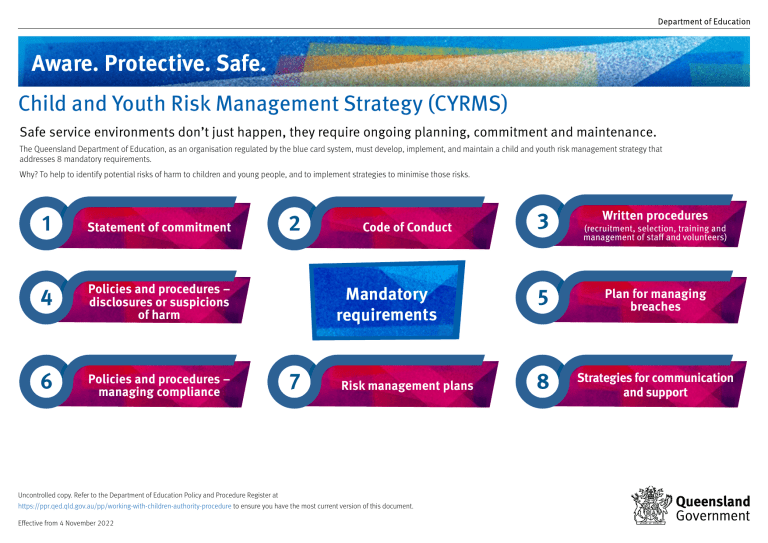
Aware. Protective. Safe. Child and Youth Risk Management Strategy (CYRMS) Safe service environments don’t just happen, they require ongoing planning, commitment and maintenance. The Queensland Department of Education, as an organisation regulated by the blue card system, must develop, implement, and maintain a child and youth risk management strategy that addresses 8 mandatory requirements. Why? To help to identify potential risks of harm to children and young people, and to implement strategies to minimise those risks. 1 Statement of commitment 4 Policies and procedures – disclosures or suspicions of harm 6 Policies and procedures – managing compliance 2 Code of Conduct Mandatory requirements 7 Risk management plans Uncontrolled copy. Refer to the Department of Education Policy and Procedure Register at https://ppr.qed.qld.gov.au/pp/working-with-children-authority-procedure to ensure you have the most current version of this document. Effective from 4 November 2022 3 Written procedures (recruitment, selection, training and management of staff and volunteers) 5 Plan for managing breaches 8 Strategies for communication and support Mandatory requirements: what you need to know Principals and regional/central office managers are required to implement the department’s CYRMS by ensuring their school/work area is aware of, and complies with each of the listed policies and procedures. Mandatory requirement Resources to assist compliance 1. A statement of commitment to the safety and wellbeing of children and the protection of children from harm ■ Our statement of commitment The Queensland Department of Education (the department) is committed to: – ensuring the safety and wellbeing of all Queensland children and young people – an Inclusive education – providing safe, supportive and disciplined environments for all children and young people across Queensland – responding promptly to allegations of harm or risk of harm to children and young people in our care – providing a child safe environment through implementation of the national principles for child safe organisations. ■ This commitment is reinforced by the department’s Aware. Protective. Safe. Strategy ■ The National Principles for Child Safe Organisations (NPCSO) Schools Checklist and Action Plan provides detailed identification of relevant policies and procedures, and is also noted as a complementary tool to support organisational cultures and practices that further child safety and wellbeing, beyond mandatory requirements. ■ At its foundation, the department has a core requirement to comply with its legislative obligations in pursuit of quality outcomes for children, students and the community. ■ The department's Enterprise Risk Management Framework is a comprehensive approach to identifying, assessing and treating risk based on the department’s risk appetite within the context of the risk environment. The framework is designed to support the achievement of the department’s priorities as presented in the Strategic Plan. ■ The department monitors risks that may impact the achievement of strategic objectives according to the level of appetite. The risk appetite statement outlines the level of risk that can be taken in delivering the department's objectives. ■ The department has the lowest risk appetite for risks associated with the safety of children and students. ■ Good governance is important to ensure the department meets its legislative requirements, makes decisions that drive performance and delivers services and programs to a high standard. ■ Governance committees enable the department to advise and support the Minister and Director-General in their decision-making responsibilities or to make decisions on their behalf. ■ Governance committees form part of the department’s Corporate Governance Framework that outlines the principles, elements and mechanisms the department uses for effective governance. ■ The Child/Student Protection and Safety Committee reports to the Executive Leadership Team and provides oversight, direction and continuous review and improvement of child/student protection and safety activities across the department to support the health, safety and wellbeing of children in early childhood education and the state schooling system. ■ The ELT sets the strategic direction and priorities for the department, makes strategic investments and budgetary decisions and monitors performance towards the achievement of outcomes for Queensland. Mandatory requirement Resources to assist compliance 2. A Code of Conduct for interacting with children and young people ■ The Code of Conduct for the Queensland Public Service (the Code) applies to all employees of the department and any volunteer, student, contractor, consultant or anyone who works in any other capacity for the department. The Code applies at all times when performing official duties or representing the department at certain events. ■ Further, the department’s Standard of Practice provides guidance on the application of the 4 ethics principles prescribed by the Code of Conduct to daily work in the department. ■ The department’s Policy Management Framework and resulting policy instruments contained within the Policy and Procedure Register prescribe further obligations and responsibilities when working in the department. ■ Teachers and professional officers such as allied health professionals engaged and/or employed with the department must adhere to the relevant registration and professional codes of conduct and ethics prescribed by the relevant registration body. 3. W ritten procedures for recruiting, selecting, training and managing staff and volunteers ■ The management of staff and volunteers is governed, in part, by the Code of Conduct for the Queensland Public Service, Standard of Practice and all policy instruments within the Policy and Procedure Register referred to above. The department’s Policy and Procedure Register and intranet site OnePortal (DoE employees only) provide extensive information to support staff in recruitment, selection, training and management of staff and volunteers. Of particular reference are the following: – Commission Chief Executive Directive: Recruitment and Selection Directive No. 12/20 – Public Service Commission Directive No. 7/11 Employment Screening – Recruitment and selection policy – Recruitment of classified teacher positions (school leaders and heads of program) procedure – Working with children authority procedure – Criminal history check procedure – Management and completion of mandatory all-staff training program procedure – Mandatory All-Staff Training program key messages guide – Mandatory All-Staff Training program – Management Foundations – Induction Strategy – Employee performance and development policy – Student protection procedure – National Disability Insurance Scheme (NDIS) provider access to state schools procedure – Managing students’ health support needs at school procedure – Supporting students with asthma and/or at risk of anaphylaxis at school procedure – Providing Personal Care for Students 4. P olicies and procedures for handling disclosures or suspicions of harm, including reporting guidelines ■ The department’s Policy and Procedure Register and intranet site OnePortal (DoE employees only) provide extensive information to support staff in handling disclosures or suspicions of harm, including reporting guidelines. ■ Of particular reference are the following: – Child and student protection policy – Student protection procedure – Allegations against employees in the area of student protection procedure – OnePortal Student protection information and resources (DoE employees only) Mandatory requirement Resources to assist compliance 5. A plan for managing breaches of the risk management strategy ■ Employee breaches of the CRYMS will be managed in accordance with existing departmental processes associated with breaches of the Code of Conduct and the Standard of Practice. ■ Department employees are required to act in accordance with the Public Service Act (2008), Public Sector Ethics Act (Qld) as well as departmental policies including the Student Protection procedure and the Code of Conduct. ■ If the department receives a complaint, report or notification about alleged employee misconduct, the department will respond to the information in a lawful, fair and reasonable way. ■ All reports, information, complaints and notifications concerning alleged employee misconduct are referred to Integrity and Employee Relations. ■ If the information obtained contains an allegation of official misconduct, the matter must be referred to the Crime and Corruption Commission (CCC). ■ A breach of departmental policies or procedures may result in directions being issued about the conduct or movement of the person at premises of state instructional institutions in accordance with the Education (General Provisions) Act 2006 (Qld). ■ For persons other than departmental employees, breaches will be managed by the Principal at the local level, via the department’s Management-enquiry guide. 6. P olicies and procedures for managing compliance with the blue card system ■ The department’s Working with children authority procedure and Working with children authority guidelines prescribe the procedure and requirements for managing compliance with the blue card system. 7. R isk management plans for high-risk activities and special events ■ The department’s Policy and Procedure Register and intranet site OnePortal (DoE employees only) provide extensive information to support staff in risk management planning for high-risk activities and special events. Of particular reference are the following: ■ Further information is available on the department’s intranet site OnePortal (DoE employees only) and Blue Card Services website. ■ The department’s Child and Youth Risk Management Strategy is reviewed annually and implemented on Day 8 of the following school year. Department-wide consultation is engaged during the review process. – Enterprise Risk Management Framework – Enterprise risk management policy – Enterprise risk management procedure – Working with children authority procedure – School excursions procedure – International school study tours procedure – Managing risks in school curriculum activities procedure and associated Curriculum Activity Risk Assessment (CARA) guidelines – DEi recruit and on-board homestay procedure – DEi student homestay placement procedure – DEi homestay provider management procedure – DEi incident management procedure – eSafety (DoE employees only) – Administration of medications in school procedure – Same day student absence notification Mandatory requirement Resources to assist compliance 8. Strategies for communication and support ■ All staff who have contact with children or students must complete mandatory annual student protection training to ensure staff have knowledge of key child protection concepts and understand their reporting obligations. ■ The department’s Policy and Procedure Register, including all departmental policy instruments, is available for all members of the public to access. ■ The department’s Working with children authority procedure and Working with children authority guidelines, including this CYRMS, is available on the department’s Policy and Procedure Register. ■ The department’s statement of commitment (see 1) is reinforced through staff induction programs and mandatory staff training programs. ■ Compliance with the Code of Conduct for the Queensland Public Service, the department’s Standard of Practice and the department’s policies and procedures forms part of the induction and mandatory training programs. ■ To ensure currency of knowledge, any staff member who manages people and/or finances (financial delegation) must complete the Management Foundations Program annually. All other staff must complete the Mandatory All-Staff Training program annually. ■ The department’s intranet site OnePortal (DoE employees only) provides key updates to staff regarding compliance with the blue card system. ■ Guidelines for using interpreters in schools and interpreter and translator services are available to support school leaders, teachers and support staff in using translating and interpreting services. ■ All staff can access Regional statewide support services to support schools in make reasonable adjustments for students with disability. The department’s CYRMS outlined above, is a supporting document to the Working with children authority procedure and lists the policies and procedures that demonstrate the department’s compliance with each of the mandatory requirements contained in the Working with Children (Risk Management and Screening) Regulation 2020 (Qld) (Schedule 1). 22336 HR 11/1/23
